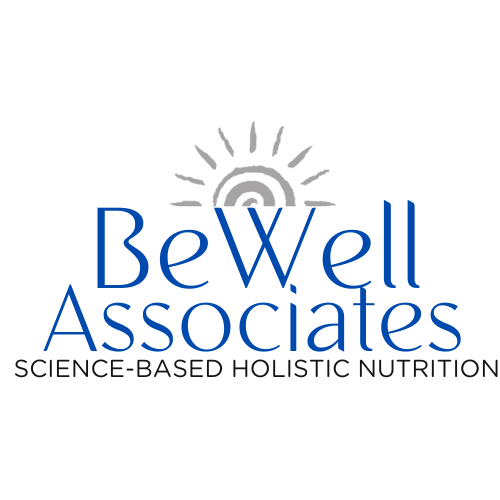According to the American Heart Association, at just 78 calories each, eggs are an efficient, rich source of protein and vitamins. A large egg contains about 6 grams of protein. Eggs also are a good source of other nutrients, including vitamin D (which aids bone health and the immune system) and choline (which helps metabolism and liver function, as well as fetal brain development).
Egg yolks also can be good for the eyes; they are significant sources of lutein and zeaxanthin, which have been found to reduce the risk of cataracts and macular degeneration, the leading cause of blindness in people 55 and older.
But egg yolks are also known for their cholesterol. A typical large egg contains 186 mg of cholesterol, more than half the amount previously recommended for daily consumption before federal dietary guidelines dropped the numerical goal in 2015, citing a lack of scientific evidence for a specific limit.
The key, according to Jo Ann Carson, professor of clinical nutrition at UT Southwestern Medical Center in Dallas, is for people to know their risk factors. In general, people at risk for heart disease, who have diabetes or who have had a heart attack should pay close attention to the amount of cholesterol in their diet.
The American Heart Association suggests one egg (or two egg whites) per day for people who eat them, as part of a healthy diet. Egg whites provide plenty of protein without the cholesterol of the yolk.
Perhaps more of an issue for those without pre-existing conditions are hidden egg allergies.
Egg Allergies
Many people have hidden egg allergies and find that removing eggs from their diet has a profound effect on how they feel each day.
According to the Mayo Clinic, egg allergy reactions vary from person to person and usually occur soon after exposure to egg.
Egg allergy symptoms can include:
- Skin inflammation or hives — the most common egg allergy reaction.
- Nasal congestion, runny nose, and sneezing (allergic rhinitis).
- Digestive symptoms, such as cramps, nausea, and vomiting.
- Asthma signs and symptoms such as coughing, wheezing, chest tightness, or shortness of breath.
Causes of Egg Allergies
An immune system overreaction causes food allergies. For an egg allergy, the immune system mistakenly identifies certain egg proteins as harmful. When you or your child comes in contact with egg proteins, immune system cells (antibodies) recognize them and signal the immune system to release histamine and other chemicals that cause allergic signs and symptoms.
Both egg yolks and egg whites contain proteins that can cause allergies, but an allergy to egg whites is most common.
Hidden Eggs in Foods Can Include:
- Marshmallows
- Mayonnaise
- Meringue
- Baked goods
- Breaded foods
- Marzipan
- Frostings
- Processed meat, meatloaf and meatballs
- Puddings and custards
- Salad dressing
- Many pastas
- Foam on alcoholic specialty coffees
- Pretzels
Several terms indicate that egg products have been used in manufacturing processed foods, including:
- Albumin
- Globulin
- Lecithin
- Livetin
- Lysozyme
- Vitellin
- Words starting with “ova” or “ovo,” such as ovalbumin or ovoglobulin
Vaccinations and Egg Allergy
Some shots to prevent illness (vaccines) contain egg proteins. In some people, these vaccines pose a risk of triggering an allergic reaction.
Plant-Based Diets
Building your meals around plants has become a popular choice for both health and planetary benefits.
According to the Harvard Medical School, the Mediterranean diet has been shown in both large population studies and randomized clinical trials to reduce risk of heart disease, metabolic syndrome, diabetes, certain cancers (specifically colon, breast, and prostate cancer), depression, and in older adults, a decreased risk of frailty, along with better mental and physical function.
Vegetarian diets have also been shown to support health, including a lower risk of developing coronary heart disease, high blood pressure, diabetes, and increased longevity.
Whatever your reasons for limiting or avoiding eggs, it’s helpful to have lots of options for replacing them in recipes. Eggs are important in baking. They create structure and stability within a batter, they help thicken and emulsify sauces and custards, they add moisture to cakes and other baked goods, and can even act as glue or glaze.
Replacing Eggs in Baking
Since hidden egg allergies are more common than you might think, try these egg substitutions in your baking recipes.
Use the following foods to replace 1 egg in recipes:
- 1/4 cup of unsweetened applesauce
- 1/4 cup pureed avocado, bananas, pumpkin
- Whisk together 1 tablespoon ground chia or flaxseeds with 3 tablespoons of water until fully absorbed and thickened
- 1/4 cup of puréed, silken tofu
- Mix 1 teaspoon of baking soda with 1 tablespoon apple cider/white vinegar. The chemical reaction between these two produces carbon dioxide and water, which makes baked goods light and airy, best used for cakes, cupcakes and quick breads.
- 1/4 cup yogurt / buttermilk, best for muffins, cakes, and cupcakes
- 2 tablespoons arrowroot powder and 3 tablespoons water
- 3 tablespoons nut butter, best used in brownies, pancakes and cookies
- 1/4 cup carbonated water, best for cakes, cupcakes and quick bread
- 1 tablespoon soy lecithin granules- great substitute for egg yolk
If you’re allergic to eggs, you don’t need to forgo baked goods when you can use these substitutions. If you do choose to eat eggs, make sure they are part of a balanced diet that focuses on vegetables, whole grains, quality proteins, and good fats.





Add Comment